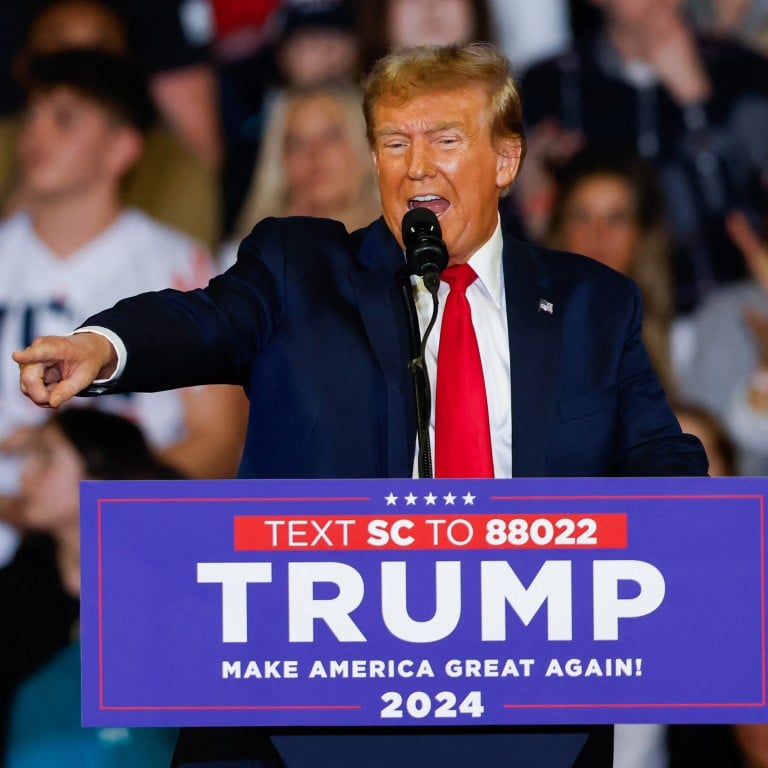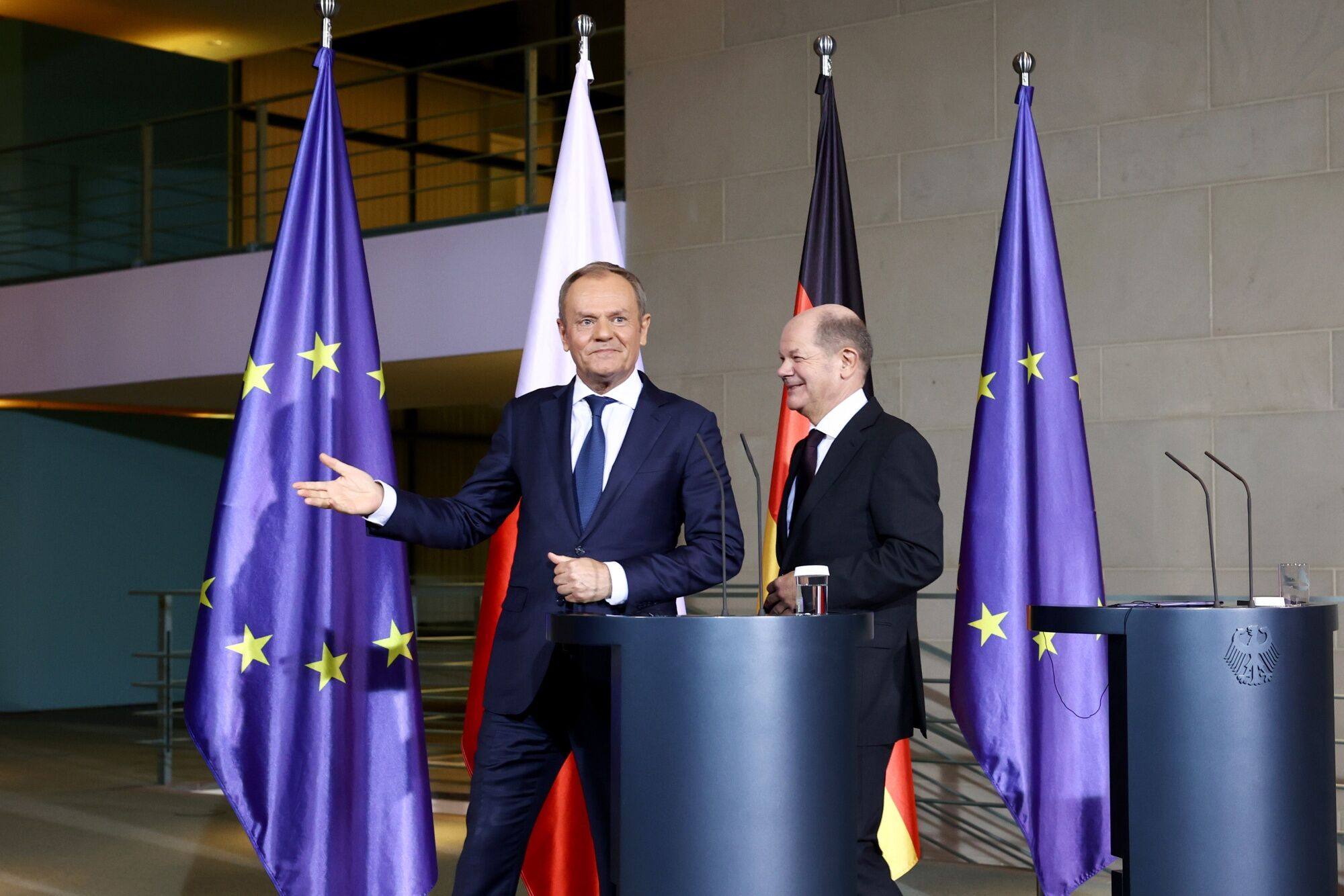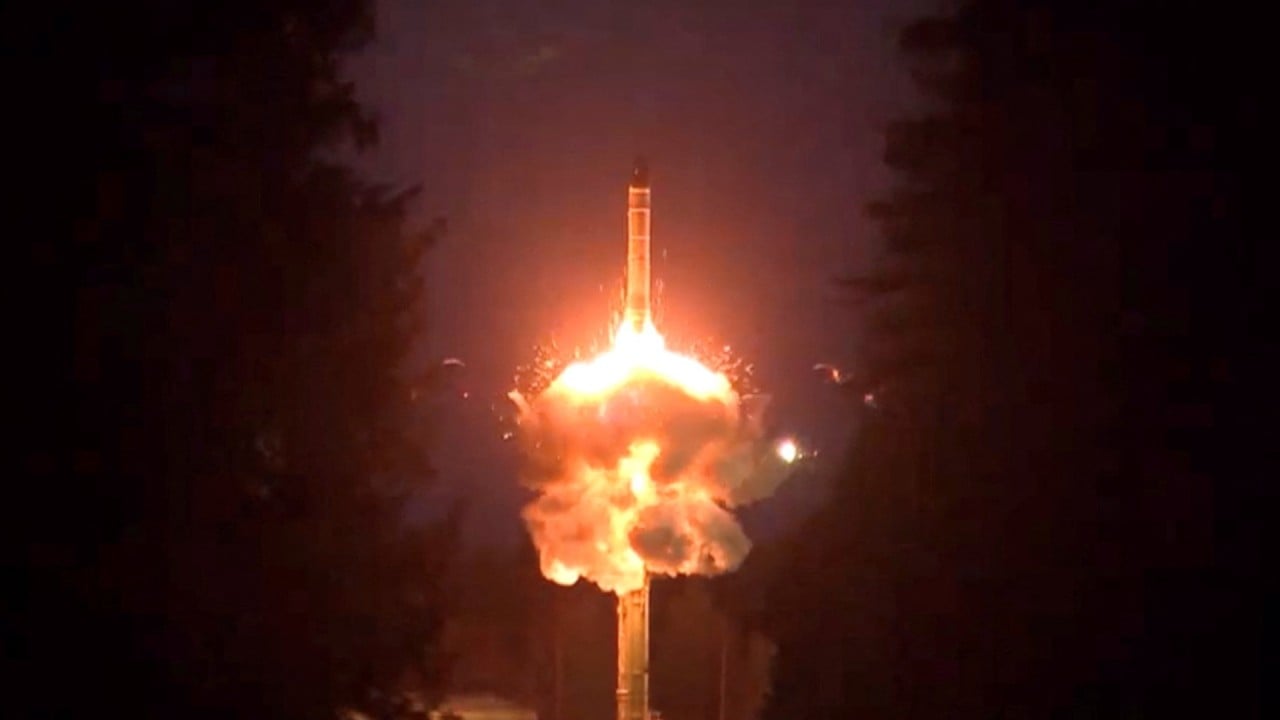
With defence spending a priority, can Nato members balance their budgets?
- Donald Trump’s threat to encourage Russia to attack alliance members which are failing to ‘pay their bills’ has horrified leaders across the West
- As the need for increased defence spending rises, pressure is being piled on national budgets that are already stretched thin
Even as a ghost in the corridors of global power, Donald Trump retains an unnerving capacity to make the windows rattle. His attack last weekend on Nato powers which he claimed are failing to “pay their bills” – suggesting he would welcome Russian President Vladimir Putin attacking them – had Europe’s leaders horrified and their defence ministers anxiously scrutinising how to increase their defence budgets.
Defence spending has now formally joined a long and growing queue of impossible budgetary imperatives facing governments worldwide, and among Nato’s 31 members in particular.
In 2016, only five members spent at this level. Today, Poland spends 3.9 per cent of its GDP on defence – even higher than the 3.5 per cent spent by the US itself. Perhaps not surprisingly, many of the Nato states that share a border with Russia are now spending above the 2 per cent threshold.

But Scholz’s dilemma is similar to that faced by many other Western leaders. How can he meet these new defence obligations on a sustainable basis when there are so many other pressing demands on his budget?
With global debt estimated by the Institute of International Finance at about US$307 trillion – amounting to more than 330 per cent of global GDP – and debt service costs soaring to record levels, the immediate pressure facing most governments is not to add to the fiscal burden but to cut spending and find new ways of raising revenue.
This applies even to the United States, where the Congressional Budget Office last week complained that government finances were on an unsustainable path, with public debt likely to rise from 97.3 per cent last year to an all-time record in 2028 and to 116 per cent in 2034. Presumably, that will not greatly trouble Trump, where a surge in military spending would probably converge with his call to bolster national security.
In response, the International Monetary Fund and World Bank, concerned that prospects for global growth are at the lowest level in decades, are calling for reinvigoration of inclusive and sustainable growth, building resilience, supporting reforms focused on the climate challenge, pandemic preparedness, skills development, and rebuilding multilateral institutions and international cooperation. I admire their sense of focus but fear they are moving deckchairs on the Titanic.
David Dodwell is CEO of the trade policy and international relations consultancy Strategic Access, focused on developments and challenges facing the Asia-Pacific over the past four decades


